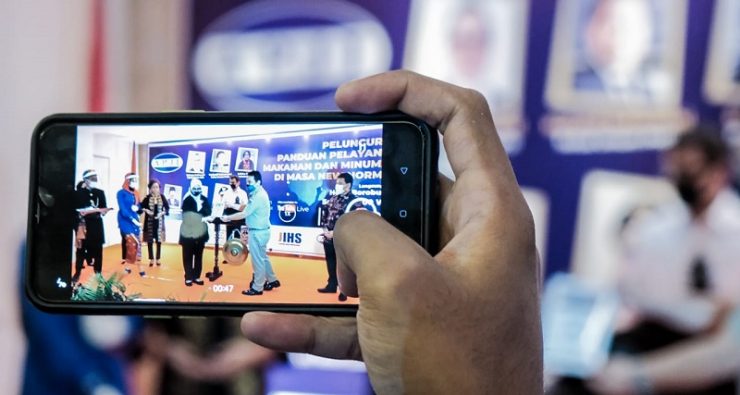THE Ministry of Tourism and Creative Economy appreciates the steps of the Indonesian Catering Services Entrepreneurs Association (APJI) which launched a health protocol handbook for the food and beverage service industry during the adaptation of new habits.
According to the Minister of Tourism and Creative Economy, Wishnutama Kusubandio said this book contained general guidelines and specific guidelines covering five clusters in the field of food and beverage services.
“Namely in restaurants, cafes and restaurants, wedding food and beverage services in buildings and houses of worship, food and beverage services on airplanes (inflight catering), food and beverage services for meeting places (meeting rooms), as well as food and beverage services drinks for the service of factory employees who generally have a large number of employees,” Wishnutama said.
He said, I appreciated and thanked APJI for taking the initiative to launch this guidebook, completing the existing guidelines so that they could truly become guidelines for food and beverage entrepreneurs.
Wishnutama explained that culinary is one of the leading sub-sectors of the creative economy that contributes the most to Indonesia’s creative economy GDP of 41% or around IDR410 trillion in 2017. So the presence of the food and health service protocol launched by APJI is expected to encourage the food and beverage industry to be able to re-operate and remain productive while remaining safe from COVID-19.
The presence of this guidebook was emphasized by Wishnutama Kusubandio not to be mere ceremonial, but was followed by the implementation of protocols that were full of responsibility, discipline, and caring among each other.
The guidebook from APJI is expected to be able to complete the existing guidelines because they contain more detailed information. Created by industry players so that it directly touches the critical point in protecting services in the food and beverage sector.
“We understand that the situation due to COVID-19 is so dynamic that it must be fully anticipated by industry players. Whatever the business is, especially in food and culinary services, it must be able to run the protocol as well as possible,” Wishnutama added.
To be able to be carried out, Minister Wishnutama also reminded that simulations, socialization, and publication and trial of health protocols in the new normal adaptation as well as possible.
“So that in its implementation it is truly understood, sometimes many people do not understand even though they already know the contents of the protocol. Therefore the handbook must be run properly in order to be useful for the community and the business world,” Wishnutama affirmed.
Meanwhile APJI Chairperson Rahayu Setiowati said the guidebook was prepared by the APJI drafting team by referring to various existing regulations. Both the COVID-19 Handling Task Force, the Ministry of Health, the Ministry of Tourism and Creative Economy, DKI Provincial Government, and the Indonesian Hotel & Restaurant Association (PHRI) as well as coordinating with other competent parties through online activities carried out since last month.
The guidebook has two main objectives, which are expected to reduce the spread of COVID-19 and secondly in an effort to accelerate recovery of the nation’s economy so that community and industrial activities can return to normal but remain safe COVID-19.
“This goal will only be achieved if there is cooperation from the government, business actors, and the community jointly carrying out the protocol and supervising in practice in the field,” Rahayu finished. [traveltext.id]
















